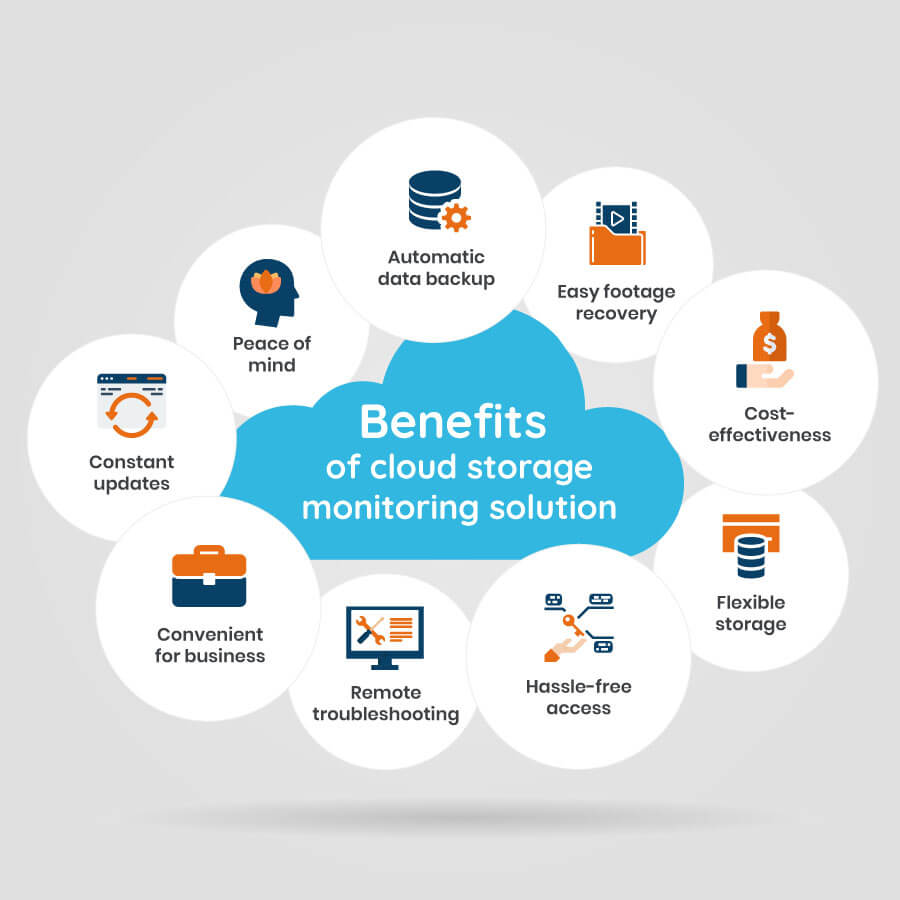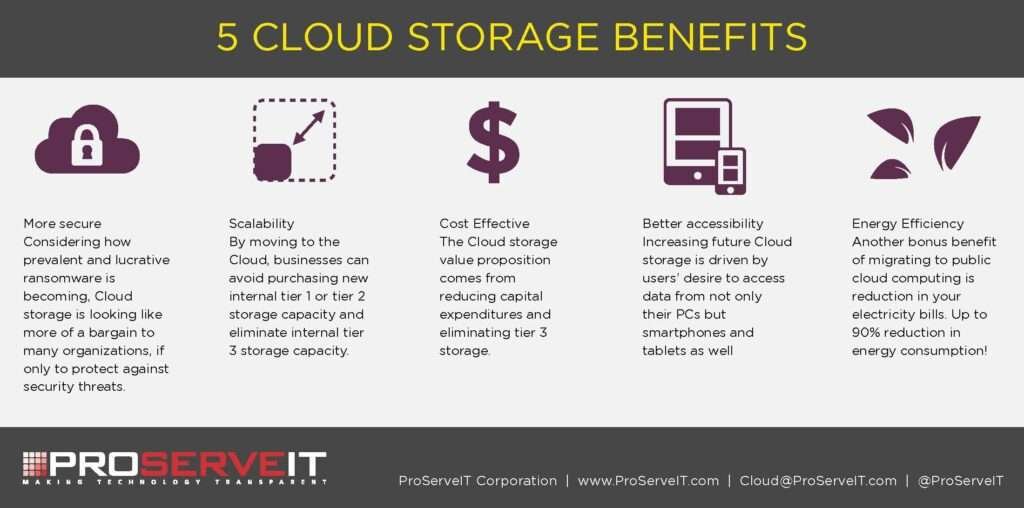In today’s digital age, businesses need efficient ways to store data. Cloud storage offers a modern solution.
Businesses face many challenges in managing data. Storing, accessing, and securing data can be tough. Cloud storage provides an effective answer. It allows businesses to store data online instead of on physical devices. This offers flexibility and convenience. Companies can access their data from anywhere, at any time.
It also helps save costs on hardware and maintenance. Plus, cloud storage ensures better security and data recovery options. For businesses, using cloud storage means more efficiency and fewer headaches. Let’s explore the key benefits of using cloud storage for your business.
Introduction To Cloud Storage
Cloud storage has transformed the way businesses handle data. It offers a flexible, scalable, and cost-effective solution for data management. Businesses, large and small, are increasingly adopting cloud storage for their data needs.
Definition And Basics
Cloud storage refers to storing data on remote servers. These servers are managed by third-party providers. Users access their data via the internet. This eliminates the need for physical storage devices.
Cloud storage providers offer various plans. These plans cater to different storage needs. Businesses can choose a plan based on their data requirements. Data can be stored, accessed, and managed from anywhere.
Why Businesses Need Cloud Storage
Businesses generate vast amounts of data daily. Traditional storage methods are often insufficient. Cloud storage offers a scalable solution. As business data grows, storage capacity can be increased easily.
Cloud storage also ensures data security. Providers implement robust security measures. This protects business data from unauthorized access. Data backups are automated. This reduces the risk of data loss.
Cost efficiency is another benefit. Businesses do not need to invest in physical storage infrastructure. They only pay for the storage they use. This makes cloud storage an affordable solution.
Accessibility is a key advantage. Employees can access data from any location. This supports remote work and collaboration. It enhances productivity and flexibility.
Enhance your knowledge on Cloud Storage and File Sharing by exploring this related piece. Best Free Cloud Storage Options: Top Picks for 2025
Cost Savings
Cloud storage offers significant cost savings for businesses. Companies can reduce expenses in several key areas. This makes it an attractive solution for organizations of all sizes.
Reduction In Hardware Costs
Businesses no longer need to invest in physical servers. Cloud storage eliminates the need for expensive hardware. This means businesses can avoid the high upfront costs. Additionally, they save space in their offices. No need for server rooms or large storage units.
Lower Maintenance Expenses
With cloud storage, maintenance costs drop significantly. Companies do not need to hire IT staff to manage servers. Cloud providers handle the maintenance and updates. This reduces the workload on the in-house team. It also minimizes downtime, ensuring smooth business operations.
Scalability
Cloud storage has revolutionized the way businesses handle data. One of the most significant benefits is its scalability. This feature allows businesses to easily adjust their storage needs without major investments in hardware or infrastructure.
Easy Resource Scaling
With cloud storage, businesses can quickly scale resources up or down. This flexibility means companies only pay for the storage they use. There’s no need to predict future storage needs and overbuy hardware. Instead, businesses can adjust resources in real-time. This agility ensures that companies can manage their data efficiently without wasting resources.
Adapt To Business Growth
As businesses grow, their data needs also expand. Cloud storage adapts to this growth seamlessly. Whether a company experiences a sudden surge in data or gradual growth, cloud storage scales accordingly. This adaptability supports continuous business operations. It ensures that data is always accessible and secure, no matter how large the company becomes. Businesses can focus on growth without worrying about data storage limitations.
Accessibility
Accessibility is one of the primary benefits of using cloud storage for businesses. It allows employees to access important files and data from any location, at any time. This flexibility can lead to increased productivity and efficiency within the organization.
Curious about Cloud Storage and File Sharing? This post offers a deeper understanding. How to Securely Share Files Online: Essential Tips & Tools
Access From Anywhere
Cloud storage ensures that your data is available from any device with an internet connection. Employees can work from home, while traveling, or even from a coffee shop. This kind of access helps in maintaining continuity and ensures that work is not disrupted.
With cloud storage, you no longer need to carry physical storage devices. Everything is stored securely in the cloud. Your team members can access the latest versions of documents and files without any hassle.
Improved Collaboration
Cloud storage enhances collaboration among team members. Multiple people can work on a single document simultaneously. This real-time collaboration speeds up project completion and ensures everyone is on the same page.
Features like commenting, task assignments, and version history make it easier to manage collaborative projects. Teams can communicate directly within the document, reducing the need for lengthy email chains.
Many cloud storage providers offer tools that integrate with other applications. This integration streamlines workflows and improves overall efficiency.
Data Security
Data security is a critical concern for businesses today. Cloud storage provides several features to protect your data. These features ensure that your information remains safe and secure. Let’s explore some of these key benefits.
Advanced Encryption
One of the primary benefits of using cloud storage is advanced encryption. Cloud providers use strong encryption protocols. These protocols protect your data both in transit and at rest.
Encryption turns your data into unreadable code. Only authorized users can access it. This ensures that even if your data is intercepted, it remains secure.
Here is a table showing common encryption protocols used by cloud providers:
| Encryption Protocol | Purpose |
|---|---|
| AES-256 | Data at rest |
| SSL/TLS | Data in transit |
| RSA | Secure key exchange |
Regular Backups
Another significant advantage is regular backups. Cloud storage services automatically back up your data. This ensures you never lose important information.
Regular backups provide a safety net. They help recover data in case of accidental deletion or data corruption. Below is a list of benefits of regular backups:
- Prevents data loss
- Enables quick recovery
- Provides business continuity
- Reduces downtime
Regular backups are essential for maintaining data integrity. They ensure your business operations run smoothly.
Looking to expand your understanding of Cloud Storage and File Sharing? This article could be just what you need. Cloud Storage Comparison Google Drive Vs Onedrive: Ultimate Guide
Disaster Recovery
Disaster recovery is a critical aspect of any business. It ensures that data can be restored quickly in the event of a disaster. Using cloud storage for this purpose offers several benefits.
Quick Data Restoration
Cloud storage allows for quick data restoration. In the event of a disaster, businesses can access their data within minutes. This is because cloud storage providers often have redundant systems. These systems ensure data is always available, even if one server fails.
Consider this scenario: a company’s office is hit by a flood. All physical files are destroyed. But, if the data is stored in the cloud, it can be restored quickly. This means the business can resume operations with minimal disruption.
Minimize Downtime
Using cloud storage helps minimize downtime. Downtime can be costly for businesses. Every minute a system is down, a company loses money. Cloud storage ensures that data is always accessible. This means that even if a disaster occurs, the business can continue to operate.
Here’s a quick comparison of downtime with and without cloud storage:
| Scenario | Downtime with Cloud Storage | Downtime without Cloud Storage |
|---|---|---|
| Server Failure | Minutes | Hours |
| Natural Disaster | Minutes | Days |
By minimizing downtime, businesses can save both time and money. This makes cloud storage an essential part of a disaster recovery plan.
Enhanced Productivity
Cloud storage brings many benefits to businesses. One major advantage is enhanced productivity. With cloud storage, teams can work more efficiently. They can access files from any location. This flexibility boosts their productivity and helps them complete tasks faster.
Streamlined Workflows
Cloud storage allows for streamlined workflows. Files are stored in a central location. Team members can access the latest versions at any time. This reduces the need for lengthy email exchanges. It also eliminates the confusion of working with outdated files. Everyone stays on the same page, speeding up project completion.
Automated Updates
Automated updates are another key benefit. Cloud storage platforms often include automatic updates. These updates ensure that all files are current. Team members do not need to manually update documents. This saves time and reduces errors. Automated updates keep everyone working with the latest information.

Credit: maxicus.com
Environmental Impact
Using cloud storage can significantly impact the environment. Businesses that switch to cloud storage can help reduce their carbon footprint. This is because cloud storage uses less energy and promotes sustainable practices.
Reduced Energy Consumption
Cloud storage reduces the need for physical servers. Physical servers require a lot of energy to operate and cool. By using cloud storage, businesses can lower their energy consumption. This decrease in energy use can lead to fewer greenhouse gas emissions.
Large data centers are more energy-efficient than small server rooms. They use advanced cooling systems and energy-saving technologies. This means that using cloud storage can be more environmentally friendly.
Sustainable Business Practices
Adopting cloud storage can make a business more sustainable. It helps reduce the need for physical hardware. This means fewer electronic devices are produced and discarded. Reducing electronic waste is good for the environment.
Cloud storage providers often use renewable energy sources. This helps reduce the reliance on fossil fuels. Businesses using cloud storage can contribute to a greener planet.
Moreover, cloud storage can help businesses meet their sustainability goals. It shows customers and partners that they care about the environment. This can enhance a company’s reputation and attract eco-conscious clients.

Credit: www.techtarget.com
Frequently Asked Questions
What Are The Main Benefits Of Cloud Storage?
Cloud storage offers easy access to files from anywhere. It enhances collaboration among team members. It also provides scalable storage solutions. Additionally, it ensures data backup and recovery.
How Does Cloud Storage Improve Business Efficiency?
Cloud storage streamlines workflows by offering seamless file sharing. It reduces the need for physical storage. It also automates data backup processes, saving time and resources.
Is Cloud Storage Secure For Businesses?
Yes, cloud storage providers implement robust security measures. These include encryption, authentication, and regular security audits. This ensures data safety and compliance with industry standards.
Can Cloud Storage Save Businesses Money?
Absolutely, cloud storage reduces the need for physical servers. It lowers maintenance costs and allows for flexible pricing. Businesses pay only for the storage they use.
Conclusion
Cloud storage offers many benefits for businesses. It provides secure data access. This ensures peace of mind. Data is available anytime, anywhere. Collaboration becomes easier with shared access. Cost savings are significant. No need for expensive hardware. Scalability is another advantage.
Businesses can adjust storage needs easily. Cloud storage also supports data backups. This prevents data loss and ensures continuity. Embrace cloud storage for efficiency and productivity. The benefits make it a smart choice.











